Anyone passionate about card games knows that mastering Phỏm takes more than just luck. Understanding the game’s rules and developing strong strategies can lead to big wins – especially when real money is involved.
To truly excel, you need to gather insights, practice consistently, and sharpen your decision-making over time. But what exactly makes a winning Phỏm player in the world of online, real-money games?
Let’s dive into some essential tips and advanced techniques that can help you play smarter and win more often.
1. Smart Calculations in Phỏm – Mastering the Straight Meld (Dây)
In Phỏm, like any serious card game, sharp focus and quick thinking are key. If you want to play well – and win real money – you need to develop strong card-calculation skills.
One of the most effective strategies for advanced players is creating a “dây” – a straight meld of three consecutive cards of the same suit (e.g., 6♥–7♥–8♥).
How to Build a Straight Meld and Outsmart Opponents
Experienced players often rely on trickery and prediction to build their straight. The goal is to lure opponents into discarding the card you need without them realizing it.
Let’s say you’re dealt the 7♥ and 8♥. You’re now waiting for the 6♥ or 9♥ to complete the meld. Here’s the trick:
- You can discard a 6♣ or 9♠, making it seem like you’re not collecting hearts.
- Your opponent, thinking it’s safe, might then drop the 6♥ or 9♥ – giving you the perfect card to complete your dây
Bonus Tip: Adapt Based on Hand Potential
Suppose you’re holding two red 9s and a 7♥. It’s unlikely you’ll pick up a third 9 for a triple. Instead, look for an opportunity to grab an 8♥, which would let you build a straight: 7♥–8♥–9♥.
This method isn’t foolproof – sometimes the player next to you won’t have the needed card. But overall, this strategy significantly improves your chances.
To boost your success even further, combine this with a solid memory strategy: learn how to track played cards and recall key discards. That’s how pros stay one step ahead.
2. Building a Triple Meld (Sáp)
Another powerful technique for playing Phỏm like a pro is forming a triple meld, known in Vietnamese as “sáp.” Unlike the straight meld (dây), this method involves collecting three cards of the same rank, regardless of suit (e.g., 7♣–7♦–7♠).
This strategy is widely used by experienced players and can be a game-changer when executed well.
How to Set Up a Triple Meld in Phỏm
To create a sáp, you’ll need at least two matching cards in hand and hope to draw or lure the third one from an opponent.
Let’s say you have two 7s but none of the surrounding cards (like 6♠, 8♦, or 9♣) needed to form a straight. In this case, your best option is to go for the triple.
Here’s how to approach it:
- Observe closely what cards are being played.
- Use psychological tactics by discarding unrelated cards (“junk cards”) to mislead your opponent.
- If the player before you discards a 7, grab it immediately to complete your triple.
Just like with the straight meld, this strategy isn’t risk-free. More advanced players may intentionally hold onto the card you need, especially if they suspect your plan. That’s why reading your opponent’s style and adapting quickly is key.
By mixing smart observation, bluffing, and calculated plays, you’ll significantly increase your odds of pulling off a sáp and taking control of the table.
3. Seat Positioning in Phỏm
One underrated yet highly effective tactic in Phỏm is choosing where you sit at the table. Yes, even your seat can impact the outcome of the game — especially when you understand your opponents’ play styles.
Why Seat Position Matters in Phỏm
If you’ve observed or played with a certain opponent before and understand their strategy, try to sit directly after them in the turn order.
Similarly, if you notice a player is less experienced or tends to make predictable moves, positioning yourself right after them gives you the advantage of responding to their plays — often leading to easier wins.
Here’s what can happen in each case:
Sitting after a weak player: These players often try to get rid of high-point cards early (a strategy called “running points”). This makes it easier for you to pick up valuable cards they discard.
Sitting after a skilled player: Caution is key here. Experienced opponents know how to disguise their hand, bait you into traps, and mislead you – increasing your risk of losing coins or falling into their strategy.
Bonus Tip: Use Cross-Wing Play When You Can’t Choose Your Seat
If you’re stuck with a less-than-ideal seat, try using the “cross-wing” tactic, a flexible play style where you shift focus based on the actions of players across the table, not just those beside you.
By combining smart seat selection with strong observation, you can gain a tactical edge in Phỏm that many players overlook.
4. Smart Phỏm Play – Strategic Thinking Without Losing
One of the best ways to consistently win in Phỏm is to sharpen your calculations and decision-making skills. Experienced players who think several moves ahead often rack up big rewards.
How to Outsmart Opponents with Clever Phỏm Tactics
Careful observation can tell you a lot. For example, most players will discard their “junk cards” early – especially if they’re hoping to receive valuable cards from others.
To stay one step ahead, you need to:
- Track which cards have been played and which are likely still in others’ hands.
- Identify patterns – such as what suits or numbers a player seems to be holding or avoiding.
- Make strategic discards to bait opponents or avoid helping them form melds.
⚠️ Note: While the original version hints at manipulative tactics like physically altering card positions during the deal (which may refer to marked cards or sleight of hand), these are not recommended or ethical in fair play environments.
Instead, we recommend focusing on legitimate mental strategies, such as:
- Card tracking
- Opponent behavior analysis
- Bluffing through smart discards
These skills are not only fair but essential if you’re serious about playing Phỏm well – especially in competitive or real-money games.
5. End-Game Strategy in Phỏm
One of the most underrated but powerful tactics in Phỏm is sending cards at the end of the game. After all players lay down their hands, you’re allowed to “send” leftover cards to others if they fit into their melds.
How to Use This to Your Advantage
If you don’t have any completed melds (phỏm) by the final round, your next best move is to hold onto cards that are likely to be sent to other players’ sets.
Here’s why it matters:
- Sending cards lets you reduce your total points at the end of the game.
- This can help you avoid finishing last, especially in close matches.
- It’s a subtle but effective way to minimize loss or even sneak into second place.
Although it may seem simple, predicting which cards are “sendable” requires skill and sharp observation. You need to:
- Track opponents’ melds.
- Estimate what cards they’re likely holding.
- Keep high-probability cards like common ranks or middle values (e.g., 7s, 8s) that fit more easily into runs or sets.
The only way to develop this intuition is through experience. The more you play, the better you’ll become at reading the table and adjusting your end-game strategy accordingly.
6. The Final Card Strategy
This is one of the most strategic ways to win consistently in Phỏm: mastering the final-card play, often referred to as “chốt hạ chắc chắn.” It’s all about timing and maximizing your profit while minimizing risk.
Understanding the High-Stakes Endgame
In many Phỏm variants — including the popular 8-card Hải Phòng version — the last card played (known as the chốt) carries significant weight:
- If you lose the first chốt, you lose 1x the base bet.
- Second time losing it, the loss doubles — 2x the bet.
- Third round? 3x the loss.
- Fourth round or final loss? 4x the base bet.
Interestingly, even if you finish last, the penalty is usually only 3x the base bet, which means:
➡️ If you manage to win the final card play (chốt), and it pays 4x the bet, you still come out ahead – even if your overall hand isn’t strong.
How to Use This to Your Advantage
- Stay alert and hold off until you spot a good opportunity to claim that final card.
- Don’t rush into finishing if the payout from a final winning move could exceed your current losses.
- This method is especially useful when playing with real stakes, as the payout structure can dramatically shift the outcome.
Smart final plays like this can be the difference between a net loss and walking away with profit – even if you’re not leading most of the game.
hơn.
7. The “Bomb Hold” Strategy
“Ôm bom” (literally “holding the bomb”) is a bold and tactical move in Phỏm that can drastically change the course of the game — especially when you know you’re unlikely to come in first.
What Is the Bomb Hold Strategy in Phỏm?
This approach is used when your hand isn’t strong enough to win. Instead of racing to build melds, your goal shifts to disrupting your opponents’ strategies, particularly to prevent them from going out or completing their final melds.
How it works:
- You might break up a pair or potential meld just to block others from completing theirs.
- You bait opponents by discarding cards that seem harmless — causing them to miss critical plays or even fall into traps.
The ultimate aim?
➡️ Force them into a “dead hand” (móm) or make them lose their final play (chốt) – increasing their penalties while minimizing your own.
This method requires experience, sharp observation, and excellent timing. When done right, it can protect your position and prevent opponents from running away with the win.
8. Phỏm Passing Trick – Control When You Drop Your Melds
“Chuyền phỏm”, or Phỏm Passing, is a clever tactic that gives you control over when to lay down your melds – whether early or at the very end of the game.
This method can be especially useful when you already have one or two phỏms in hand and need to decide the right time to show your cards.
When and Why to Use the Passing Technique
Let’s say you’ve calculated that your hand is strong enough to finish first. However, you’re unsure if another player has the same score or may beat you to it by going out first.
In this case, you can use this strategy to delay laying down your phỏms until the final turn, allowing you to:
- Send extra cards to reduce your point total, and
- Secure a clearer victory margin.
Alternatively, if you’re confident about your lead and want to play it safe, you might choose to drop your phỏms early – especially if you anticipate someone else trying to hold their hand and catch up at the last minute.
What This Strategy Requires
To use the Phỏm Passing trick effectively, you must:
- Read your opponents’ intentions and assess whether they’re trying to finish early.
- Accurately evaluate your own hand, especially whether your remaining cards carry the lowest point total.
This technique adds a strategic layer to your gameplay, letting you manipulate turn order and final scoring — a subtle but impactful edge in tight matches.
9. The Memory Mastery Technique – Remember Every Card Played
One of the most powerful techniques used by seasoned Phỏm players is developing a sharp memory – the ability to recall every card that has been played during a match.
Why Memory Matters in Phỏm
Being able to remember discarded cards allows you to:
Predict what cards your opponents are holding, or at least what they are not likely to have.
Avoid discarding valuable cards that could help others complete their phỏm.
Quickly eliminate hopeless “waiting melds”, helping you focus on real opportunities.
Some high-level players can even reconstruct their opponents’ hands based solely on memory and deduction – turning every decision into a calculated move.
This kind of skill doesn’t come overnight. It’s built through:
- Consistent practice
- Careful observation
- Learning from previous matches
Interestingly, this technique also appears in Phỏm-style billiards (bida phỏm) – where memory plays a key role in gaining a strategic advantage.
Whether at the card table or the billiard table, mental sharpness can be your biggest weapon.
10. Hold Big – Play Small
This strategy – often called “Hold Big, Play Small” – is high-risk, but it’s popular among bold Phỏm players who like to gamble on timing and opportunity.
How It Works
The idea is to hold onto high-value cards early in the game instead of discarding them right away. You wait for the right moment – typically toward the end of the game – to either:
Use them to complete a phỏm, or
Send them to another player’s meld after they lay down their hand.
This tactic relies on Phỏm’s rule that allows players to “send” cards to others after melds are shown. If you time it right, you can offload big cards and drastically lower your point total.
The Risks
- If you don’t complete a phỏm or get a chance to send cards, you’re left holding high-point cards – and that can lead to a quick loss.
- It requires careful calculation and a good read of the table to know when to make your move.
Some players even tie this into deceptive play styles, sometimes called “Phỏm bluffing”, though we recommend sticking to fair, strategic gameplay for lasting success.
11. Preventing an Opponent from Going “Ù”
Sometimes, you’re dealt a terrible hand – cards that clearly aren’t going to form any melds.
In this situation, your best move may be to shift your focus from winning to defense. That means closely watching the player next to you and blocking their chance to go “Ù” – the Phỏm term for an instant win when all cards are melded.
Why is this important?
Because when someone wins by “Ù,” the payout is much higher than in regular wins. By stopping them, you may not win the round, but you prevent a heavy loss and keep the game closer.
12. “Marked Cards” – A Controversial Shortcut
Some players use marked cards, known in Vietnamese as “bài lỗi công ty”, where subtle marks on the back of each card reveal its identity.
⚠️ Important note:
This method is considered cheating and is not recommended by Vaobo or any fair-play community. Whether you choose to use it is your responsibility – but we encourage honest skill-based play for long-term success and enjoyment.
Instead, why not take the challenge head-on? Try mastering Southern-style Tá Lả (Phỏm) – a fun, strategic variant that keeps things fair and competitive.
13. Discarding Junk Cards (Tẩu Tán Lá Bài Rác)
To win at Phỏm, you must either:
- Form three complete melds (for a win by “Ù”), or
- Finish with the lowest total points when the round ends.
This makes it crucial to get rid of junk cards – those that don’t help you form melds – as early and strategically as possible.
Priority Rules for Discarding Junk Cards:
First priority:
Discard cards not waiting on any meld, even if they have a low point value.
Second priority (if all junk cards are “waiting” cards):
- Discard the one that already has a matching card on the table, or
- Discard cards with adjacent values in the same suit already shown – making them more predictable and less risky.
Final priority:
If all else is equal, discard the card with the highest point value.
14. Reading Your Opponent’s Phỏm
Reading your opponent’s Phỏm doesn’t mean peeking at their cards – especially in online games where that’s impossible. Instead, it means analyzing the cards they’ve discarded to infer what melds they might be building or waiting on.
How to Read Effectively
Focus especially on the player sitting right after you – the one who can eat your discarded card. Here’s the basic principle:
A card your opponent discards is likely one they don’t need.
So, if they throw away a 6♠, chances are they’re not building a meld with 6s or spades. If you’re not confident in deep reads yet, stick to a simple rule:
- Discard cards that match the values or suits of the ones they’ve already thrown away.
It’s not foolproof – but it’s much safer than randomly discarding high-point cards without context.
15. Phishing for a Phỏm – The “Bait and Catch” Strategy
This clever technique, known as “câu phỏm”, is all about baiting your opponent into discarding the card you need.
How It Works
Let’s say you’re waiting on the 9♥ to complete a run: 7♥–8♥–9♥. But you’re holding a 9♦. In the early rounds, you discard the 9♦ to trick the player before you into thinking you don’t want 9s at all.
Seeing that you threw away a 9, they might confidently discard the 9♥ — falling right into your trap.
Another variation: if you keep discarding low-value cards (e.g., 2, 3, 4), the player before you might think you’re holding high cards and avoid discarding low ones – when in fact, you’re just waiting on a single low card to complete your set.
Subtle misdirection = smart plays.
16. Arrange Your Melds Wisely
Sometimes, one card can fit into two potential melds – a run (same suit, sequential numbers) or a set (same value). When that happens, don’t rush to finalize one meld and discard the other.
What to Do Instead
- Keep both meld options open.
- Monitor the cards being played.
- Discard other junk cards while you wait to see which meld becomes more viable.
If you reach a round where a fourth discard forces a choice, go with the higher-point meld, leaving the lower-point card as your remaining “junk.”
Pro tip: Familiarize yourself with all the possible Phỏm win conditions – including tricky ones like Ù Khan – to maximize your decision-making power.
17. Never Let an Opponent Win on the Final Card
One golden rule in Phỏm: Don’t let your opponent eat the final discard (“cây chốt”) – especially when you suspect they’re close to winning.
Why? Because:
- The final card win can trigger a 4x payout penalty against you.
- It can cause you to lose far more than simply finishing with a bad hand.
Even if your remaining cards are high-value, it’s often smarter to hold them than to accidentally hand the win to your opponent.
When in doubt – defend, don’t feed.
Conclusion
There are countless ways to play Phỏm like a pro – and each strategy offers its own advantage when applied correctly. Whether it’s baiting, memory skills, seat selection, or end-game tactics, mastering these techniques can significantly boost your winning potential.
But here’s the key:
- No strategy works without practice.
The more you play, the better you’ll understand which methods suit your style and which ones consistently earn you results. Don’t be afraid to experiment and adapt. Once you become fluent in even just one or two of these techniques, you’ll find yourself winning more often – and enjoying Phỏm or Tá Lả like never before.
So, shuffle up, stay sharp, and get ready to outplay the table!

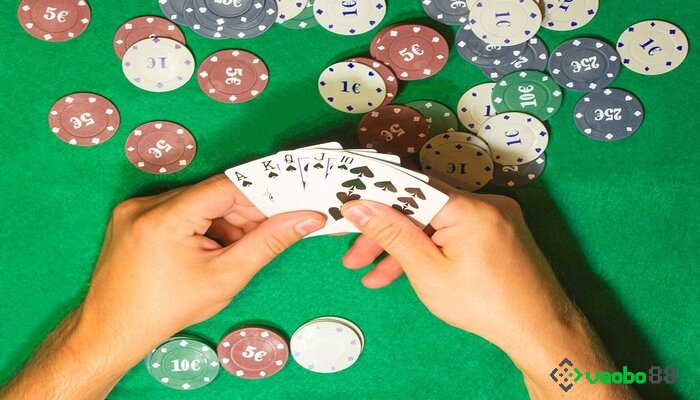
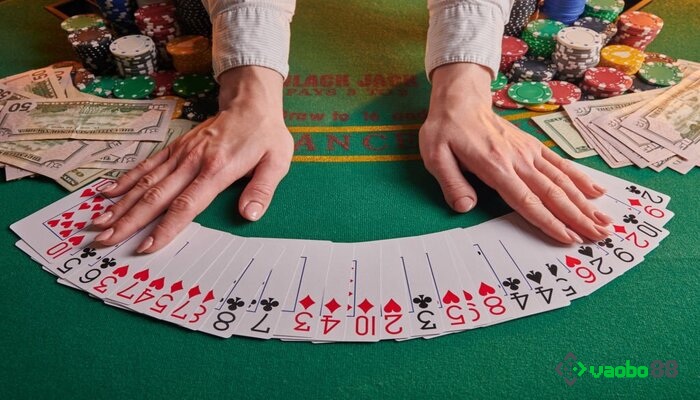
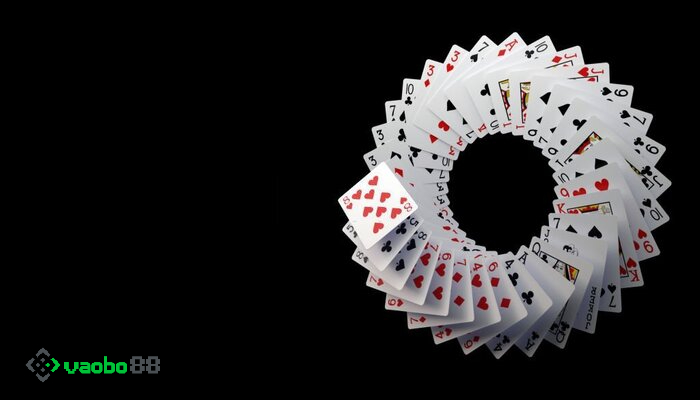

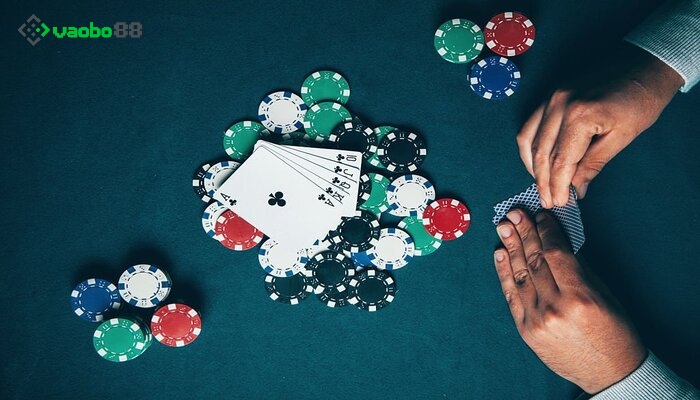

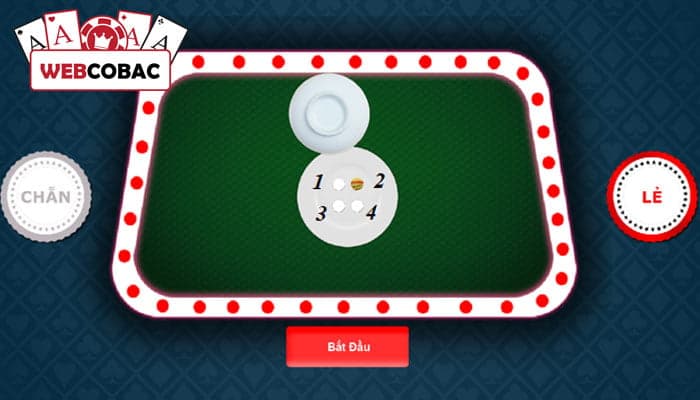




![Basic and Detailed Table Tennis Rules from A to Z [Updated 2025]](/_next/image?url=https%3A%2F%2Fvaobo88.com%2Fwp-content%2Fuploads%2F2025%2F05%2F1-6.jpg&w=3840&q=75)







